
At about 2pm on Sunday 26 November 1922, a moustachioed Englishman plunged a candle into a jet-black chamber and was greeted by the most extraordinary sight. Glinting in the glow of the flickering flame was gold - gold that had lain undisturbed for more than three millennia. "Can you see anything?" came a voice from behind him. Peering into the darkness, the Englishman - Howard Carter - replied: "Yes, it is wonderful."
Carter was right. It was wonderful. For what the 48-year-old archaeologist and his companions had just unearthed was the most extraordinary discovery in the history of archaeology: the tomb of the pharaoh Tutankhamun.
Over the following months, what emerged from that darkened chamber and three rooms beyond electrified global fascination in ancient Egypt. A plethora of breath-taking treasures - from gold-covered beds and ivory gaming boards to the pharaoh's iconic death mask - would make Tutankhamun one of the most instantly recognisable rulers in history and turn Carter into an archaeological superstar.
Yet what makes this story even more extraordinary is that Carter's discovery was achieved very much against the odds. Until the events of November 1922, Tutankhamun was a bit-part pharaoh in ancient Egypt's long and turbulent history - and Carter's funding was about to be withdrawn.
That their fortunes were reversed so spectacularly was the result of the perseverance of numerous archaeologists, the toil of hundreds of Egyptian workers - and an aristocratic patron.
Tutankhamun was born in the 14th century BC, some 33 centuries before Howard Carter discovered his tomb.
Coming to the throne before his 10th birthday, he was dead before he was out of his teens. The cause of his death is uncertain - and many theories have been posited (see page 32) but it was perhaps the result of a compound fracture of his left leg.
هذه القصة مأخوذة من طبعة November 2023 من BBC History Revealed.
ابدأ النسخة التجريبية المجانية من Magzter GOLD لمدة 7 أيام للوصول إلى آلاف القصص المتميزة المنسقة وأكثر من 9,000 مجلة وصحيفة.
بالفعل مشترك ? تسجيل الدخول
هذه القصة مأخوذة من طبعة November 2023 من BBC History Revealed.
ابدأ النسخة التجريبية المجانية من Magzter GOLD لمدة 7 أيام للوصول إلى آلاف القصص المتميزة المنسقة وأكثر من 9,000 مجلة وصحيفة.
بالفعل مشترك? تسجيل الدخول
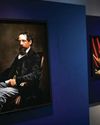
'Dickens's evocation of the fears, excitement and confusion of childhood is peerless'
DR LEE JACKSON ON WHY CHARLES DICKENS REMAINS RELEVANT TODAY
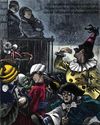
THE AUTHOR GOES ABROAD
Dickens expanded his horizons and boosted his fan-base by venturing overseas - but global fame came with a cost
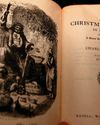
REVIVING THE FESTIVE SPIRIT
A Christmas Carol wasn't just a bestseller - it changed the way that Britons chose to mark the festive season
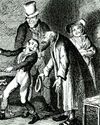
GIVING THE POOR A VOICE
From Hard Times to Oliver Twist, Charles Dickens used his pen to help illuminate the lives of the less fortunate
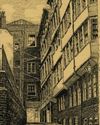
A JOURNEY THROUGH DICKENS'S LONDON
The works of Charles Dickens are synonymous with visions of Victorian London. We talk to Dr Lee Jackson about the author's love of the capital, and the locations that most inspired him
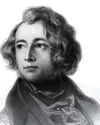
EXCEEDING EXPECTATIONS
Dr Lee Jackson chronicles Charles Dickens's journey from down-at-luck teenager to titan of Victorian literature

GIFTS, TREES & FEASTING
We take a journey through the photo archives to reveal how Christmas and its many traditions have been celebrated over the years - and around the world
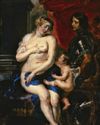
WHAT GREAT PAINTINGS SAY
We explore the story behind an allegorical painting that celebrates the triumph of love over hate, peace over war
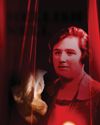
HELLISH NELL
Malcolm Gaskill delves into the life of Helen Duncan - the fraudulent Scottish medium whose ectoplasm-filled seances saw her ending up on the wrong side of the law

7 THINGS YOU (PROBABLY) DIDN'T KNOW ABOUT THE WHITE HOUSE
Presidential historian Dr Lindsay M Chervinsky reveals some of the most surprising facts about the world-famous US residence